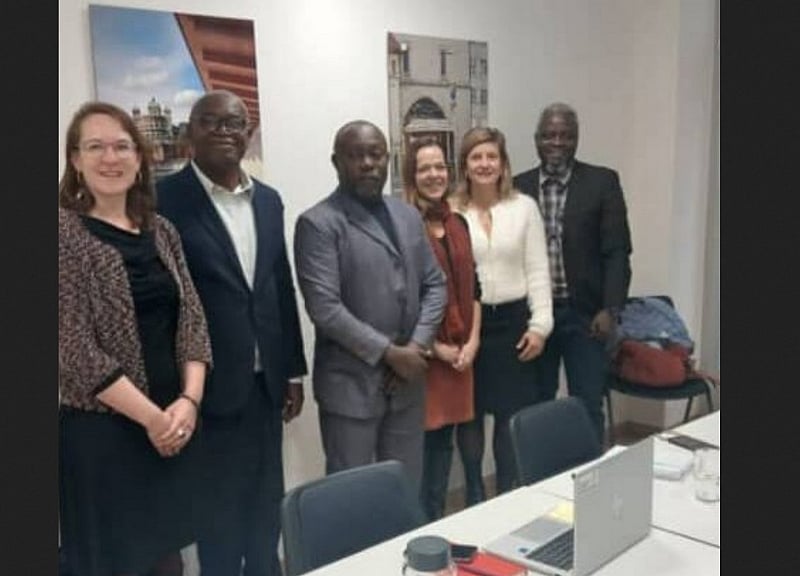Paragraph 1: The Imperative of Responsible Small-Scale Mining in Ghana
Ghana’s small-scale mining sector, while contributing significantly to the nation’s economy and providing livelihoods for many, faces critical challenges related to environmental sustainability and miner safety. Irresponsible practices, often driven by the pursuit of quick profits, lead to ecosystem degradation and pose significant health risks to those involved in the mining process. Recognizing the need for change, the Chamber of Bullion Traders Ghana (CBTG) has been proactive in seeking solutions, engaging with international partners like Switzerland’s State Secretariat for Economic Affairs (SECO) to develop strategies for promoting responsible mining practices. This collaboration underscores the understanding that sustainable mining not only protects the environment and improves miner well-being but also enhances the long-term economic viability of the sector.
Paragraph 2: Bridging the Gap Between Aspiration and Practice
The CBTG acknowledges the disconnect between the miners’ desire for increased output and the often-unsafe practices employed to achieve this goal. While miners aspire to improve their yields, they frequently lack the technical expertise and resources to implement responsible mining methods. The CBTG emphasizes the importance of practical, field-based training as the most effective way to impart the necessary knowledge and skills. Classroom-based instruction, while valuable, does not adequately equip miners to navigate the complexities of on-site operations and implement sustainable practices in real-world scenarios. The emphasis on field-based training highlights the recognition that responsible mining requires a hands-on approach to learning and skill development.
Paragraph 3: A Call for Swiss Collaboration and Support
Given Switzerland’s long-standing role as a major importer of Ghanaian gold, the CBTG emphasizes the Swiss government’s responsibility to support capacity-building initiatives for Ghanaian miners. This call for collaboration highlights the interconnectedness of global trade and the shared responsibility for ethical sourcing. The CBTG seeks Swiss assistance not only in providing training but also in addressing the financial barriers that prevent miners from adopting more sustainable equipment and technologies. The high cost of equipment necessitates innovative solutions, including the establishment of centralized processing plants, which require substantial investment but offer significant long-term benefits in terms of efficiency and environmental protection.
Paragraph 4: Stakeholder Engagement and Incentive Structures
The CBTG underscores the importance of engaging key stakeholders, including international organizations like Metalor and Swiss Better Gold, in the collaborative effort to promote responsible mining. These organizations bring expertise and resources that can be crucial in driving change within the sector. Furthermore, the CBTG recognizes the need for effective incentive structures to encourage miners to transition away from informal and unsustainable practices. The allure of quick profits from black-market sales presents a significant challenge. Therefore, the CBTG proposes highlighting the premium price that responsibly sourced gold commands in the market. This price differential, if effectively communicated, can serve as a powerful motivator for miners to adopt sustainable practices, creating a win-win scenario for all stakeholders.
Paragraph 5: Addressing Inefficiencies and Demonstrating Potential
Existing inefficiencies within Ghana’s small-scale mining sector not only lead to economic losses for miners but also contribute to environmental degradation. Low gold recovery rates in both hard rock and alluvial mining highlight the need for technological improvements. The CBTG has conducted pilot tests on centralized processing plants that demonstrate the significant potential for increased efficiency and profitability. These pilot projects have shown that recovery rates can be more than doubled while simultaneously reducing processing time. This increased efficiency translates into higher profit margins for miners, making the adoption of such systems more appealing. The evidence from these pilot tests serves as a strong argument for investment in centralized processing facilities.
Paragraph 6: A Path Forward for Sustainable Mining
The meeting between SECO and the CBTG represents a crucial step towards fostering a more sustainable and responsible small-scale mining sector in Ghana. The dialogue highlights the multifaceted challenges that need to be addressed, ranging from technical training and financial constraints to the development of effective incentive structures and the implementation of more efficient technologies. The collaboration between Ghanaian stakeholders and international partners like Switzerland offers a promising path forward. By working together, these actors can create a mining sector that benefits both the economy and the environment, while also improving the livelihoods and safety of the miners themselves. The emphasis on practical solutions, stakeholder engagement, and demonstrable improvements in efficiency provides a solid foundation for achieving long-term sustainability in Ghana’s small-scale mining industry.














